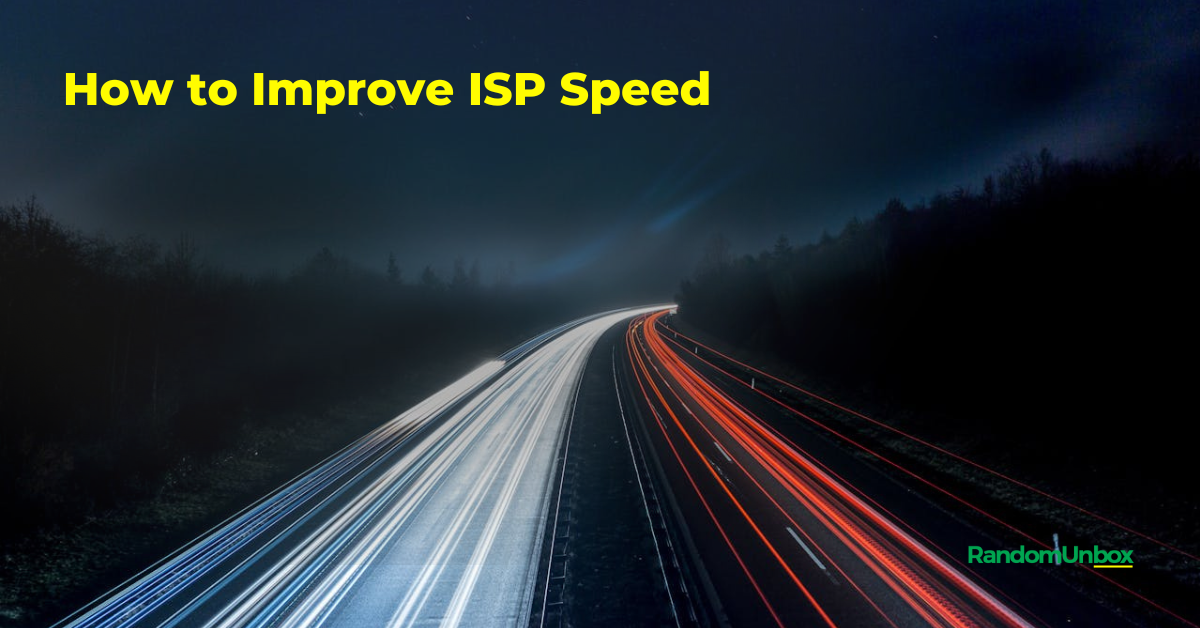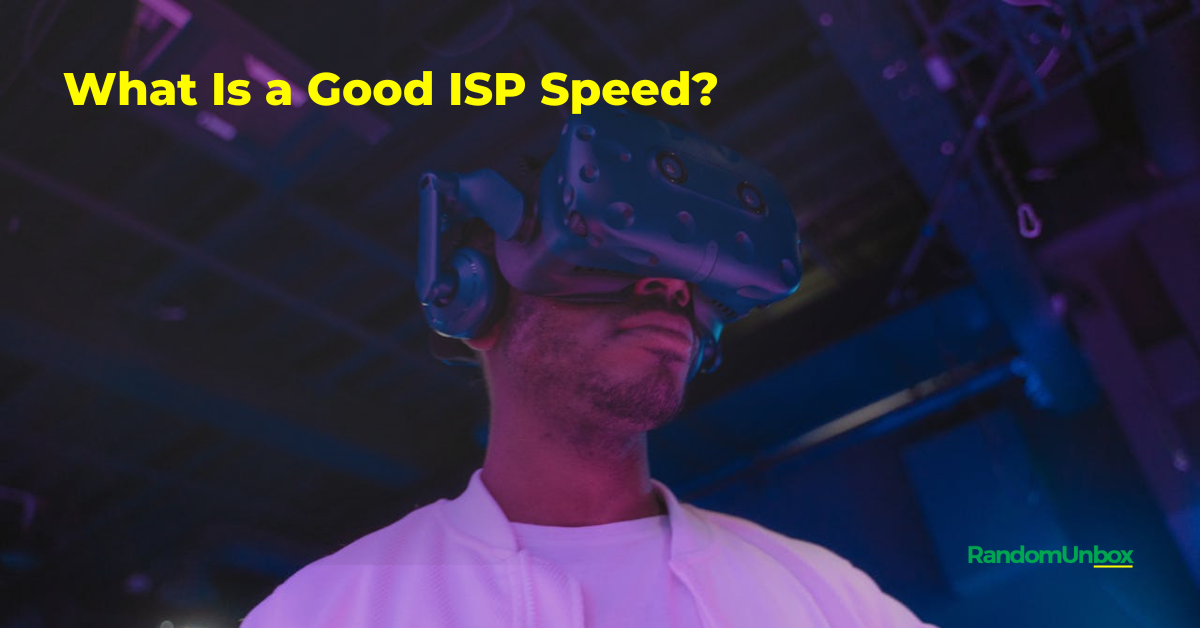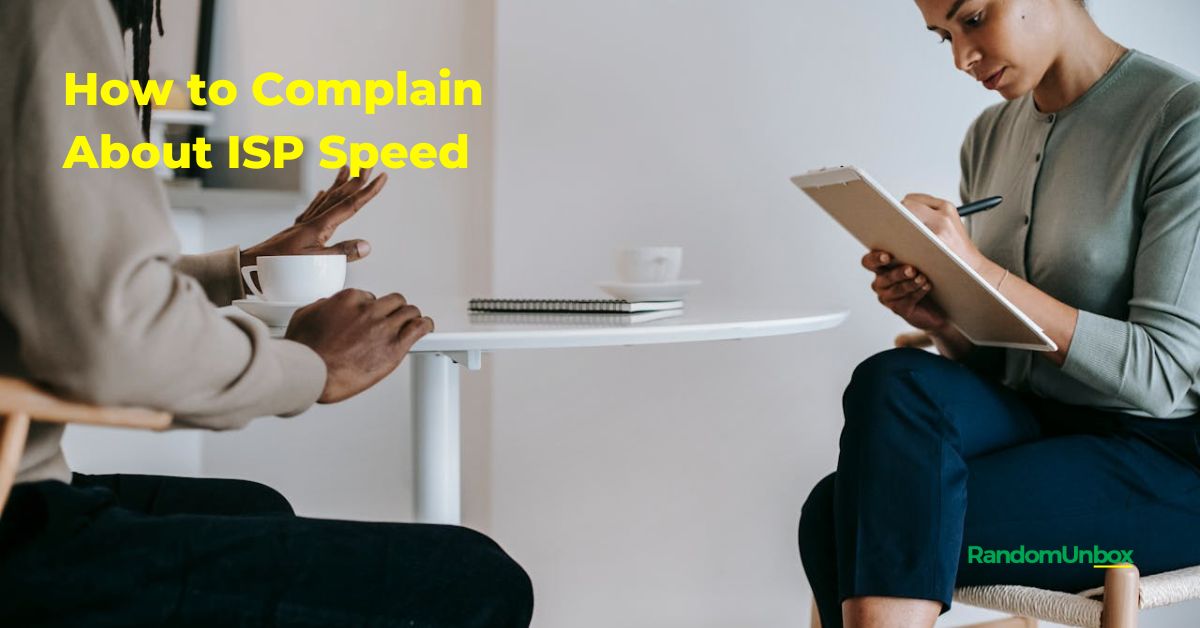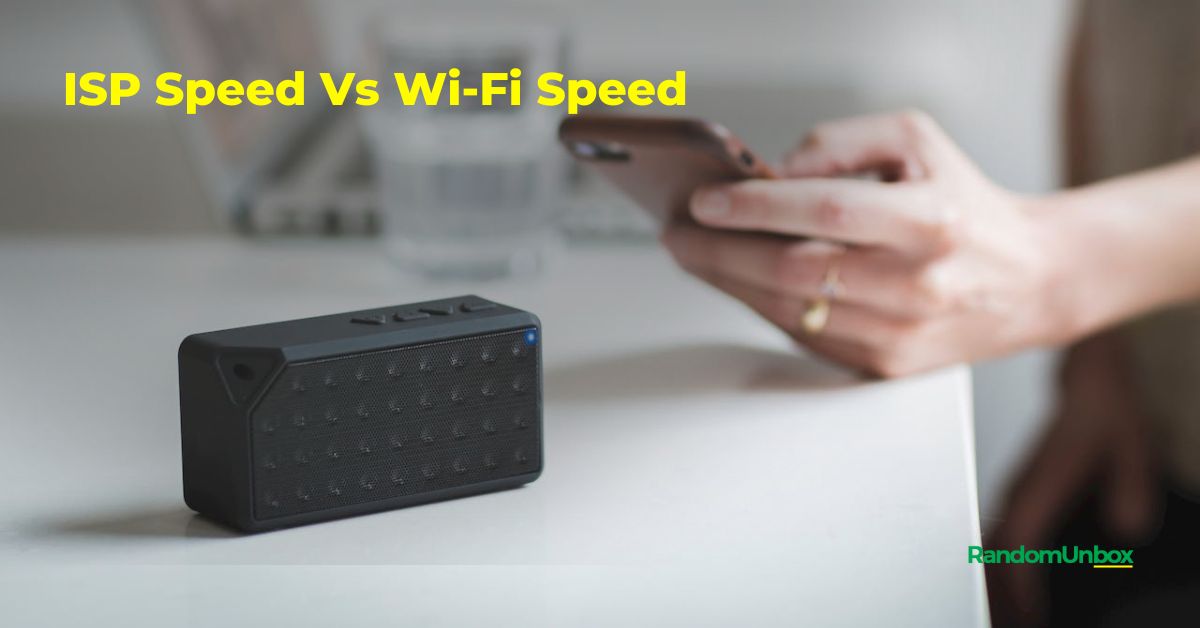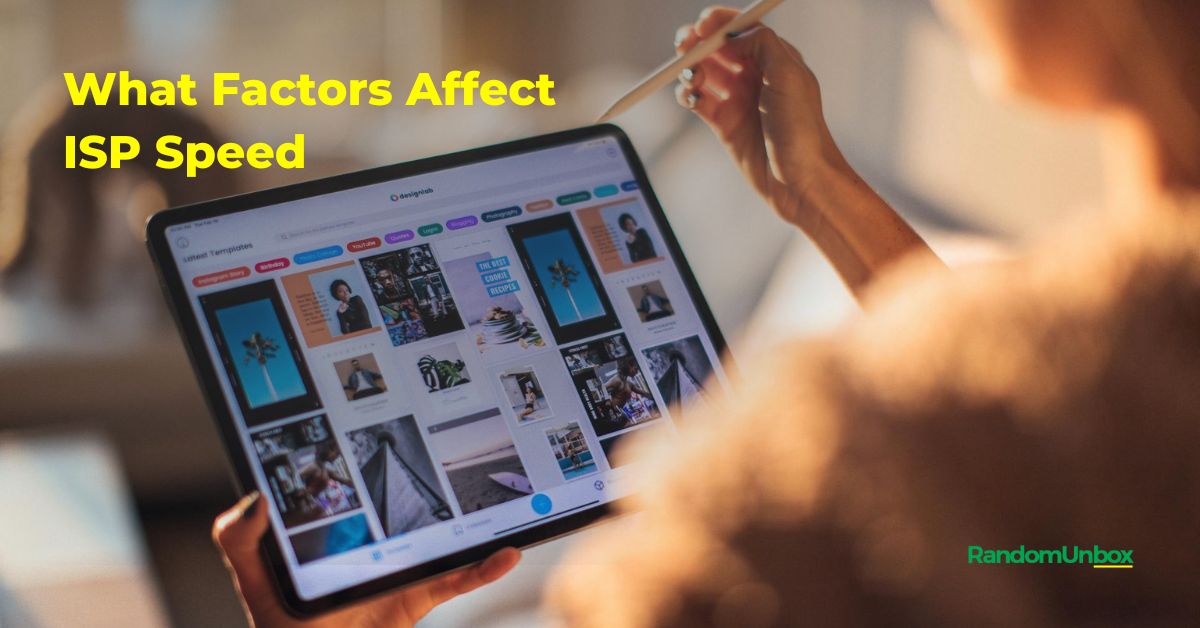ISP Speeds
Everything You Need to Know About Choosing the Right Internet Speed
In today’s digital world, a reliable internet connection is no longer a luxury, it’s a necessity. From staying connected with loved ones to streaming entertainment, conducting online business, and even managing smart home devices, the performance of your internet significantly impacts your daily life.
However, with numerous internet service providers (ISPs) offering various speed options, choosing the right plan can be overwhelming. This comprehensive guide aims to empower you, whether you’re a new internet user, looking to upgrade your current plan, have a household with multiple devices, or are a dedicated gamer or streamer, to make informed decisions about your internet speed needs.
Understanding Speed Measurement: Mbps and Gbps Demystified
Internet speed is typically measured in megabits per second (Mbps) or gigabits per second (Gbps). These units represent the amount of data that can be transferred over your internet connection in a single second. The higher the Mbps or Gbps, the faster the data transfer.
Here’s a simplified breakdown:
- Mbps: Ideal for basic activities like web browsing, checking email, and streaming standard-definition video.
- Gbps: Delivers significantly faster data transfer, perfect for high-bandwidth activities like streaming 4K content, online gaming, and downloading large files.
Real-world examples:
- Downloading a large video game:
- 25 Mbps – Takes approximately 20 minutes.
- 100 Mbps – Takes approximately 5 minutes.
- Streaming a 4K movie:
- 25 Mbps – May experience buffering and lag.
- 50 Mbps – Smooth and uninterrupted viewing experience.
Factors Affecting Your Internet Speed
Beyond the advertised Mbps/Gbps, several factors can impact your actual internet speed:
- Download Speed: Refers to how quickly data is received on your device. Crucial for activities like streaming and downloading files.
- Upload Speed: Determines how fast data is sent from your device. Important for video conferencing and online gaming.
- Latency: Also known as “ping,” measures the time it takes for data to travel between your device and the server. Low latency is critical for real-time activities like online gaming and video calls.
- Data Caps: Some ISPs limit the amount of data you can use within a specific billing period. Exceeding the cap can result in throttling (slowing down your internet) or additional charges.
Recognizing Your Internet Usage Needs
Different online activities demand varying internet speeds.
- Basic Use (1-3 Mbps): Web browsing, checking email, social media scrolling.
- Streaming SD Video (3-5 Mbps): Watching standard-definition movies and TV shows.
- Streaming HD Video (5-8 Mbps): Enjoying a smooth experience with high-definition content.
- Streaming 4K Video (25+ Mbps): Experiencing exceptional quality with Ultra HD visuals.
- Online Gaming (25+ Mbps): Supporting fast-paced games with minimal lag.
- Video Conferencing (25+ Mbps upload): Enabling seamless video calls with high-quality visuals.
By understanding your typical online activities and the corresponding speed requirements, you can accurately evaluate which internet plan best suits your needs.
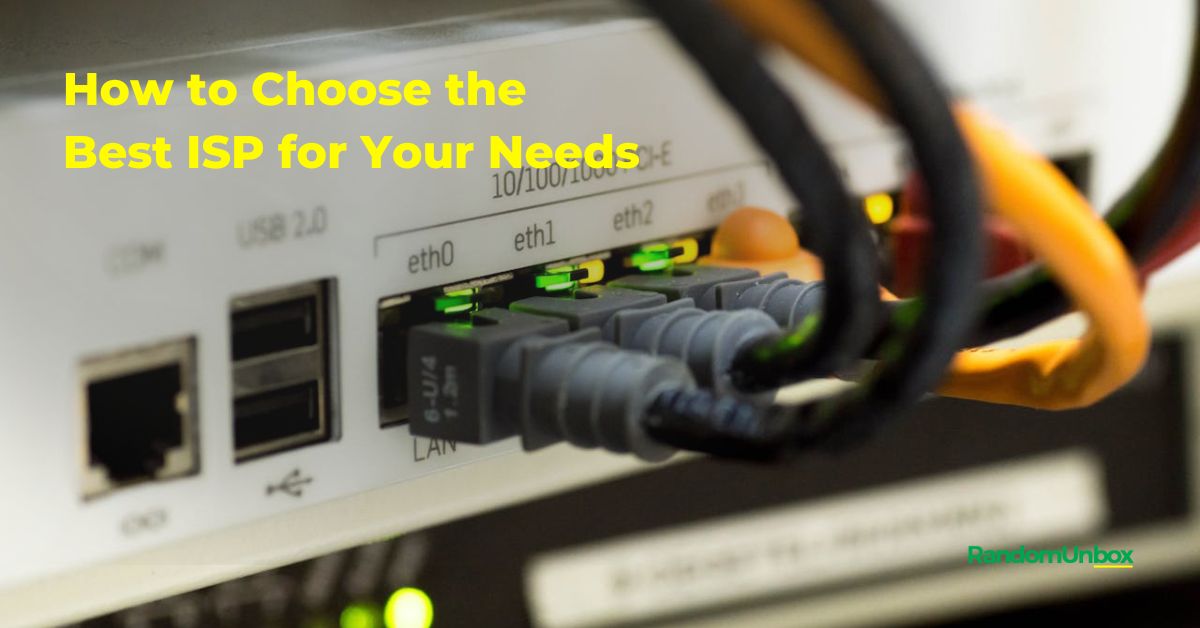
Comparing ISP Plans: More Than Just Speed
When comparing ISP plans, consider these factors:
- Speed: Choose a plan that offers sufficient download and upload speeds for your needs.
- Price: Compare different plans and find one that offers the best value for your budget.
- Data Caps: If you frequently use a lot of data, opt for a plan with a high data cap or unlimited data to avoid extra charges.
- Additional Features: Some ISPs offer bundled service packages with phone and cable TV, or features like parental controls and security software.
Pro Tip: Utilize online tools or contact your local ISPs to compare plans and pricing options in your area.
Here is a table that compares some of the best internet service providers in the USA, based on U.S.:
| ISP | Speed Tiers | Price | Data Cap | Additional Features |
|---|---|---|---|---|
| Verizon Fios | 200 Mbps, 400 Mbps, 940/880 Mbps | $39.99, $59.99, $79.99 | Unlimited | Disney+ and Hulu for 12 months, Amazon Echo Dot and Smart Plug |
| AT&T Internet | 100 Mbps, 300 Mbps, 500 Mbps, 940 Mbps | $35, $45, $60, $60 | 1 TB or Unlimited | HBO Max for 12 months, 1,000 GB cloud storage, Smart Home Manager app |
| Xfinity Internet | 50 Mbps, 100 Mbps, 200 Mbps, 400 Mbps, 600 Mbps, 1200 Mbps | $19.99, $34.99, $49.99, $64.99, $74.99, $84.99 | 1.2 TB or Unlimited | Flex 4K streaming device and voice remote, Peacock Premium, xFi Gateway modem and router |
| WOW! Internet | 100 Mbps, 200 Mbps, 500 Mbps, 1000 Mbps | $34.99, $39.99, $49.99, $59.99 | 1 TB or Unlimited | Free installation, no contracts, whole-home Wi-Fi |
Note: The prices and features may vary depending on your location and availability. Please check the ISP’s website for the most accurate and up-to-date information.
Troubleshooting Slow Internet: Tips to Get Back on Track
Even with the right plan, you might encounter occasional slow internet. Here are some troubleshooting tips:
- Restart your router and modem: A simple reboot can often resolve temporary network issues.
- Check for Wi-Fi interference: Move your router away from electronic devices that might interfere with the signal.
- Disconnect unused devices: The more devices connected to your network, the slower the shared bandwidth becomes.
- Contact your ISP: If the problem persists, reach out to your ISP for further troubleshooting assistance.
Conclusion: Choose Wisely, Experience Seamlessly
By understanding your internet usage needs, deciphering different speed options and their impact, and carefully comparing ISP plans, you can make an informed decision that empowers you to experience a seamless and uninterrupted online journey.
Remember, the digital landscape continues to evolve, demanding more sophisticated internet needs. This guide serves as a valuable resource to equip you with the knowledge and tools necessary to navigate the ever-changing internet landscape, ensuring you access the internet speed that unlocks your online potential.
Embrace the power of information and choose wisely to maximize your online experience!
Frequently Asked Questions
1. What is the difference between Mbps and Gbps?
Answer: Mbps (megabits per second) and Gbps (gigabits per second) are units used to measure internet speed. Mbps is suitable for basic activities like browsing and streaming standard-definition video, while Gbps offers significantly faster data transfer for demanding tasks like streaming 4K content and online gaming.
2. How much internet speed do I need?
Answer: Your ideal internet speed depends on your online activities. Basic browsing and email require less than 5 Mbps, while streaming HD video and online gaming typically require 25 Mbps or more. Consider the number of devices connected to your network and the activities you perform most frequently when determining your needs.
3. What factors affect my internet speed?
Answer: Several factors can impact your internet speed, including:
- Download speed: Determines how quickly data is received.
- Upload speed: Influences how fast data is sent from your device.
- Latency: Measures the time it takes for data to travel between your device and the server.
- Data caps: Some ISPs limit data usage, and exceeding the cap can slow down your internet.
4. What are some tips for troubleshooting slow internet?
Answer: If you experience slow internet, try restarting your router and modem, checking for Wi-Fi interference, disconnecting unused devices, or contacting your ISP for further assistance.
5. How can I compare different ISP plans?
Answer: Compare ISP plans based on factors like:
- Speed: Choose a plan that offers sufficient download and upload speeds for your needs.
- Price: Find a plan that fits your budget.
- Data caps: Consider unlimited data or a high data cap if you use a lot of data.
- Additional features: Look for features like parental controls, security software, or bundled services.
6. What is the best way to choose an ISP?
Answer: There’s no single “best” ISP, as the optimal choice depends on your individual needs and location. Utilize online comparison tools, contact local ISPs directly, and consider factors like speed, price, data caps, and customer reviews to make an informed decision.
7. What are the benefits of having a higher internet speed?
Answer: Higher internet speed offers faster download and upload times, smoother streaming, improved online gaming experience, and better performance for video conferencing and other data-intensive activities.
8. What is the difference between wired and wireless internet connections?
Answer: Wired connections (e.g., Ethernet) offer a more stable and reliable connection compared to wireless (Wi-Fi) connections, which can be susceptible to interference and distance limitations. However, Wi-Fi provides greater flexibility and convenience for connecting multiple devices.
9. What is net neutrality, and how does it affect internet users?
Answer: Net neutrality is the principle that ISPs should treat all internet traffic equally. This means they should not prioritize or throttle certain types of content or applications. While net neutrality regulations have been debated and changed, understanding the concept can help you choose an ISP that prioritizes fair and open internet access.
10. What are some emerging internet technologies that could impact future internet speeds?
Answer: Several technologies are being developed to enhance internet speeds and capabilities, including fiber optics, 5G networks, and satellite internet. As these technologies evolve, internet users can expect potentially faster and more reliable connections in the future.



